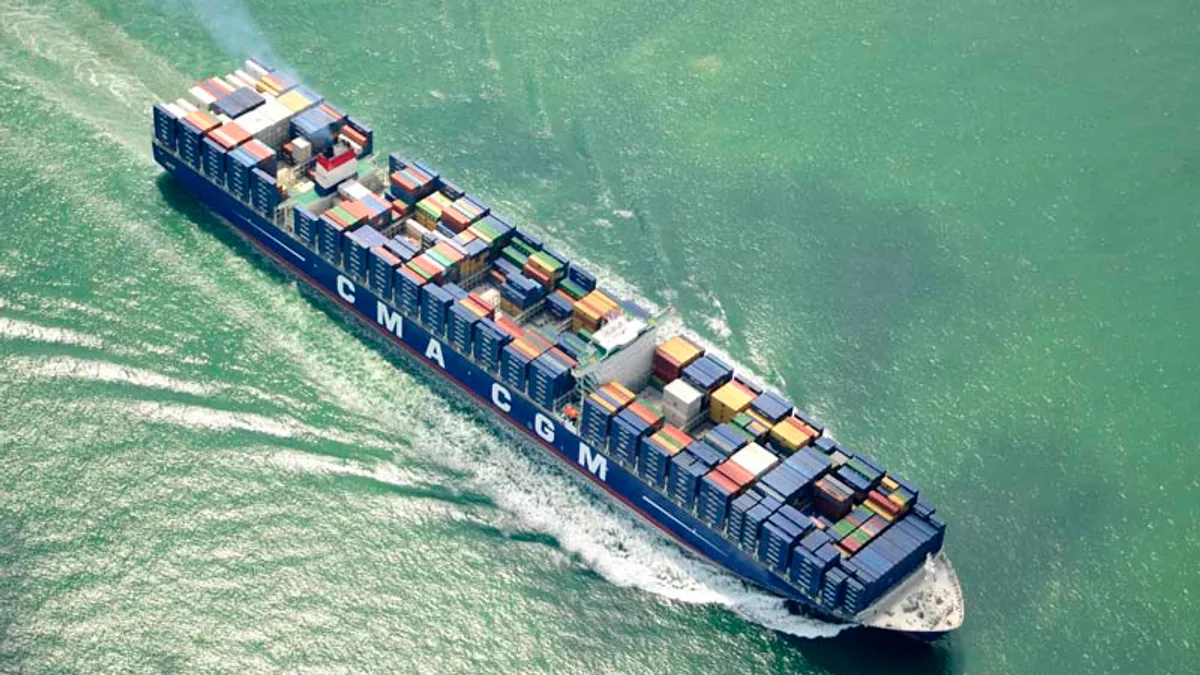Dive Brief:
- The price of very low sulfur fuel oil has fallen 35% between January and March as a result of global oil prices declining over the same period, according to Drewry.
- "The good news is that the fuel part of ocean freight rates paid by shippers will fall and that the underlying bunker costs of shipping lines will also be much lower than previously expected," Drewry wrote. "The extra cost of the IMO 2020 rule will be deferred until the global economy [normalizes]."
- The cheaper oil prices will act "as a short-term cash infusion to carriers having bunker surcharges based on oil prices two months ago and paying bargain basement prices for oil today," according to a Sea-Intelligence note emailed to Supply Chain Dive. Shippers will benefit too — so long as their sailing isn't blanked — as bunker fees slide with oil cost.
Dive Insight:
Cheap fuel may be one of the few aspects of the global shipping environment currently acting in favor of the carrier. Factory shutdowns in China cut demand for ocean freight and carriers responded by canceling sailings to get capacity to match demand.
Carriers continue to announce new blank sailings — Maersk today announced two new canceled trips scheduled for April.
"[O]ur analysis points in the direction that it can no longer be ruled out that container shipping might be looking at developments similar to the financial crisis of 2009," Sea-Intelligence wrote in its note. "This implies a potential volume loss of 10% equal to 17 Million TEU globally."
Capacity management by carriers has meant shippers have experienced relatively consistent rates through an otherwise tumultuous period, according to Sea-Intelligence.
Rates are currently lower, on average, than they were the same period last year. The average rate from China to the North American West Coast is down about 7% year-over-year, while China to the North American East Coast is down about 6% year-over-year, according to Freightos.















